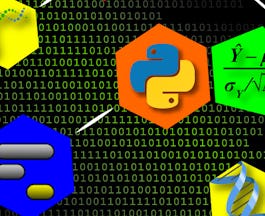What You’ll Learn
Next generation sequencing experiments
Genomic technologies
DNA, RNA and epigenetic patterns
Genome analysis
Skills You’ll Gain
Shareable Certificate
Earn a shareable certificate to add to your LinkedIn profile..
Develop Your Specialized Knowledge
Learn in-demand skills from university and industry experts
Master a subject or tool with hands-on projects
Develop a deep understanding of key concepts
Earn a career certificate from Johns Hopkins University
6 courses series
This course introduces you to the basic biology of modern genomics and the experimental tools that we use to measure it. We'll introduce the Central Dogma of Molecular Biology and cover how next-generation sequencing can be used to measure DNA, RNA, and epigenetic patterns. You'll also get an introduction to the key concepts in computing and data science that you'll need to understand how data from next-generation sequencing experiments are generated and analyzed. This is the first course in the Genomic Data Science Specialization.
This class provides an introduction to the Python programming language and the iPython notebook. This is the third course in the Genomic Big Data Science Specialization from Johns Hopkins University.
We will learn computational methods -- algorithms and data structures -- for analyzing DNA sequencing data. We will learn a little about DNA, genomics, and how DNA sequencing is used. We will use Python to implement key algorithms and data structures and to analyze real genomes and DNA sequencing datasets.
Introduces to the commands that you need to manage and analyze directories, files, and large sets of genomic data. This is the fourth course in the Genomic Big Data Science Specialization from Johns Hopkins University.
Learn to use tools from the Bioconductor project to perform analysis of genomic data. This is the fifth course in the Genomic Big Data Specialization from Johns Hopkins University.
An introduction to the statistics behind the most popular genomic data science projects. This is the sixth course in the Genomic Big Data Science Specialization from Johns Hopkins University.




